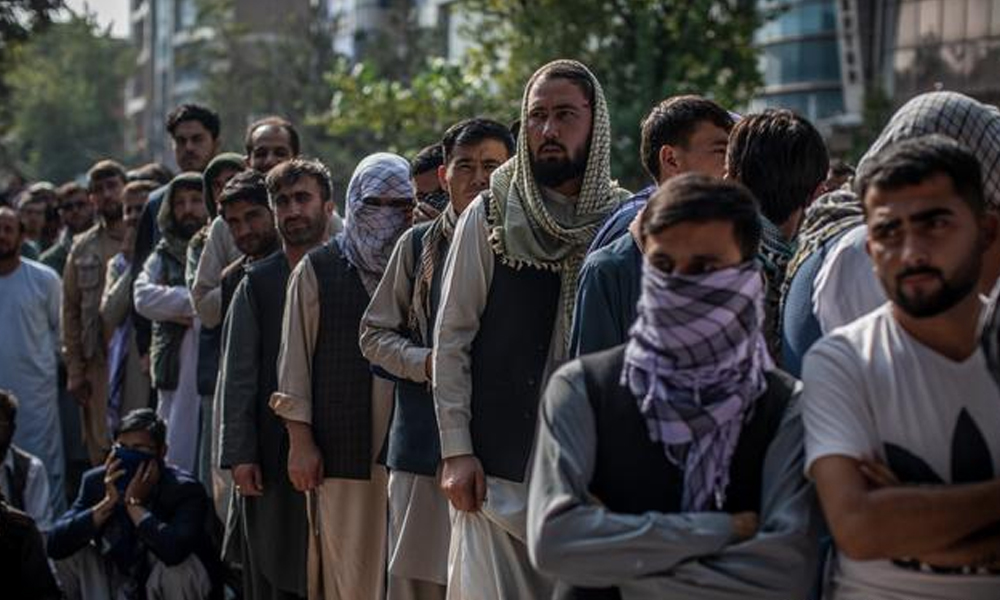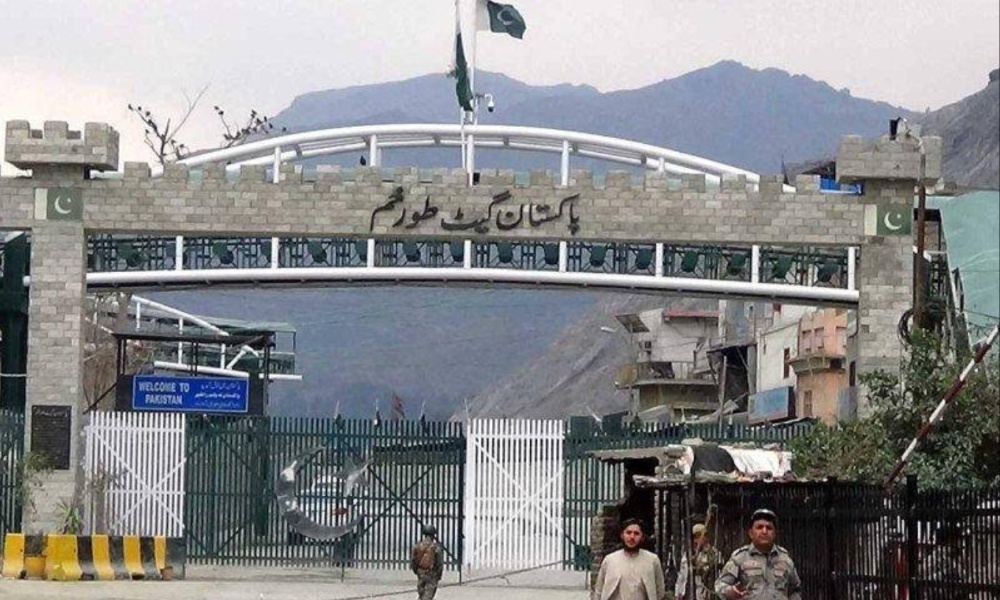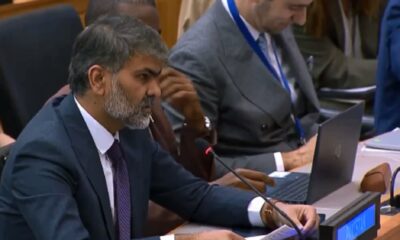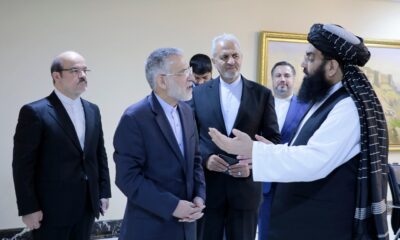Business
SIGAR issues pessimistic economic forecast for Afghanistan

Afghanistan’s economy suffered severe contraction in 2021, with the UN Development Programme (UNDP) and IMF estimating up to a 20–30 percent drop, the US Special Inspector General for Afghanistan Reconstruction (SIGAR) reported.
According to SIGAR’s latest report, annual per capita income is estimated to have fallen from $650 in 2012, to $500 in 2020, and is expected to drop to $350 by 2022.
SIGAR stated that male unemployment in Afghanistan may nearly double from 15.2 percent in 2019 to 29 percent by 2022.
“In the worst-case scenario modeled by the Asian Development Bank, unemployment could increase by more than 40 percent in the short run and household consumption could contract by 44 percent,” read the report.
The devaluation of the afghani has also impacted the Afghan economy and further diminished Afghan households’ ability to purchase food and
other necessary items, because much foreign trade was settled in US dollars.
Since August last year, the afghani has depreciated against the US dollar, from approximately 77 afghani to the dollar to around 105 as of January
2, 2022.
SIGAR also reported that adding to the pressure on the country’s limited cash reserves, Afghanistan lacks the technical capabilities to print its own currency.
According to SIGAR, the IEA has not yet secured or developed a domestic printing source for afghani banknotes.
SIGAR reported that Afghanistan’s largely cash-based economy has continued to struggle with an acute cash shortage since November, which has limited day-to-day economic activities.
“Banks are at the center of a liquidity crisis, with lost access to international financing and depositors attempting to recover their funds,” read the report.
According to a UNDP report, Afghanistan’s banking system is in “existential crisis.” Total deposits had fallen to the equivalent of $2 billion as of
September 2021 from $2.8 billion the month.
As the Afghan economy has struggled to find areas of sustainable economic growth in recent years, the country has increasingly relied on remittances from Afghans working abroad, especially in neighboring Iran.
By 2019, remittances accounted for the equivalent of 4.3 percent of Afghanistan’s annual GDP, an increase from 1.2 percent in 2014, according to World Bank data.
However, officials from the UN’s International Organization for Migration estimate this figure could have been as high as 15–20 percent, given that many remittances are sent through the informal hawala money-transfer system.
According to officials at Médecins Sans Frontières, with the absence of a functioning banking sector, many NGOs have also been forced to rely on
hawalas to pay expenses within Afghanistan.
In November 2021, the IEA announced a complete ban on the use of foreign currency in Afghanistan, interfering with remittance activities and
worsening the country’s liquidity crisis.
However, SIGAR reported that indicators suggest that the currency ban is not being actively enforced against the US dollar, which continues to be widely used in Afghan markets.
Business
Trump unveils first $5 million ‘gold card’ visa

Holding a prototype that bore his face and an inscription “The Trump Card”, the Republican president told reporters that the special visa would probably be available “in less than two weeks”.
“I’m the first buyer,” he said. “Pretty exciting, huh?”
Trump previously said that sales of the new visa, a high-price version of the traditional green card, would bring in job creators and could be used to reduce the US national deficit.
The billionaire former real estate tycoon, who has made the deportation of millions of undocumented migrants a priority for his second term, said the new card would be a route to highly prized US citizenship.
He said in February that his administration hoped to sell “maybe a million” of the cards and did not rule out that Russian oligarchs may be eligible.
(AFP)
Business
Trump imposes 10% tariff on imports from Afghanistan
The tariffs, he said, were a response. The base tariff of 10 percent on almost all US imports will be imposed by April 5, the additional reciprocal tariffs on countries will kick in on April 9.

President Donald Trump on Wednesday announced a range of tariffs targeting almost all countries that the United States trades with including Afghanistan.
Trump announced the tariffs in an executive order alongside an address in the Rose Garden at the White House on Wednesday.
In the executive order, Trump said while the US trading policy has been built on the principle of reciprocity, taxes and barriers on US products by its trading partners had hurt the US.
The tariffs, he said, were a response. The base tariff of 10 percent on almost all US imports will be imposed by April 5, the additional reciprocal tariffs on countries will kick in on April 9.
During his address, Trump made the argument that the US is charging its trading partners with smaller tariffs compared with the tariffs and non-tariff barriers that the partners impose on the US.
“For decades, our country has been looted, pillaged, raped and plundered by nations near and far, both friend and foe alike,” Trump said.
“If you want your tariff rate to be zero, then you build your product right here in America,” he said.
According to information from officials at the Chamber of Commerce and Investment, currently the total volume of trade between Afghanistan and the United States is between $8 and $10 million annually.
Afghan private sector representatives call on the US to reconsider Afghanistan’s inclusion in the tariffs list.
“It will undoubtedly affect us to some extent. Our trade with the US is small, but important items are exported, such as handicrafts, an industry in which women especially work. Handicrafts such as hats are exported. Antique items that are very important to know our identity are also exported. Dried fruits and sometimes fresh fruits and carpets are also exported,” Khan Jan Alokozai, a member of the Chamber of Commerce and Investment, said.
Abdul Qasim Amarkhel, head of the Dried Fruit Exporters’ Union, says: “The 10% tariff is cruel and illegal. This country is not China or Europe, but Afghanistan. Our dried fruit exports to the US are not that high. It is around $10 million. We ask the US to reconsider this decision. It should also release our frozen funds.”
Afghanistan’s exports to the US are mainly carpets and dried fruits.
Business
Exports to Pakistan grind to a halt over faulty scanner at Torkham
Pakistani authorities closed the border to vehicles coming in from Afghanistan after the scanning machine used to track imports developed technical problems.

A faulty scanner on the Pakistan side of Torkham border left goods trucks stranded in Afghanistan this week, Pakistani media reported.
Pakistani authorities closed the border to vehicles coming in from Afghanistan after the scanning machine used to track imports developed technical problems.
Importers in Pakistan told Dawn that both the Afghan and Pakistani authorities allowed only empty trucks stranded on the Afghan side to cross into Pakistan.
This comes after the border crossing was closed for a month due to disputes and clashes between border forces. The crossing only reopened late March.
According to border officials, this is the second time that the scanner developed problems since the reopening of the crossing. As a result exports from Afghanistan to Pakistan ground to a halt. Exports included coal, soapstone, fresh produce and dried fruit.
Frustrated traders have called for the scanning system to be replaced with a modern version in order to resolve trade challenges at the border.
Traders also voiced their frustration over customs tariffs at the border. They said the customs terminal operator, National Logistic Cell, charges Rs8,000 for every truck that crosses, whether it is loaded or empty.
-

 Latest News4 days ago
Latest News4 days agoAfghanistan’s reconstruction is in the interest of EU: Uzbek president
-

 Latest News5 days ago
Latest News5 days agoUS won’t rest until all Americans detained in Afghanistan brought home: Rubio
-

 Latest News4 days ago
Latest News4 days agoMinistry of Economy calls on US to release Afghanistan’s frozen funds
-

 Latest News4 days ago
Latest News4 days agoBulgaria brings five people to trial over deaths of 18 Afghan migrants
-

 Latest News3 days ago
Latest News3 days agoPakistan ‘extends’ deadline for a week for Afghans to leave the country
-

 Regional5 days ago
Regional5 days agoChina launches military drills around Taiwan, calls its president a ‘parasite’
-

 Business5 days ago
Business5 days agoGold climbs to record high as tariff worries bolster safe-haven demand
-

 Sport4 days ago
Sport4 days agoIPL 2025: Batters in race for prestigious Orange Cap

























